Get Them Active

High-energy kids are full of contagious enthusiasm and a love of fun, but all of that energy can take its toll on mom. There are plenty of outlets, though, and our experts have weighed in with 10 sporty activities that are likely to please even the feistiest pint-sized power ball—and get rid of all that energy … for a little while, anyway.
Swimming
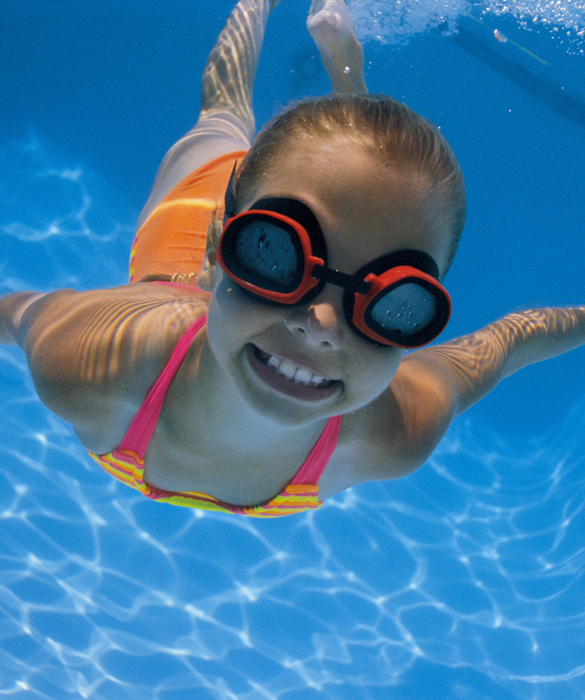
One of the best ways to keep a hyper tot happy is a cool dip in the pool. "A great activity for a high-energy child is swimming," says Jennifer Plaut Cohen, a pediatrician based in Pasadena, Calif. "It provides great exercise, hours of fun and tons of sensory stimulation to children." Pools, lakes and sandy beaches are all perfect spots for big and little kids alike to cool their heels. Best part? They're sure to be tuckered out come bedtime.
Races
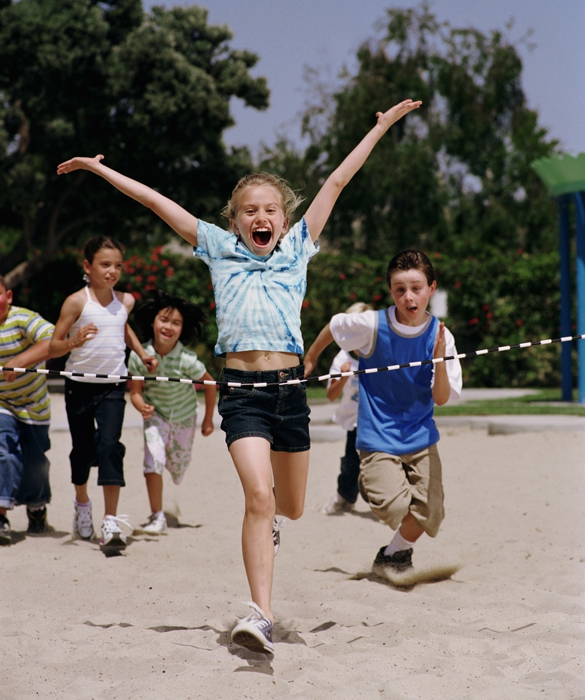
“Most children are energetic in spurts, and running distance-measured races expends a great deal of energy over a short term,” says Miles Groth, professor of psychology at Wagner College. “There is a winner, a next best, and so on. A series of these is desirable, since it gives the child a chance to win if he has lost the first race. Psychologically, a child feels that he has completed something. Children—high-energy boys especially—do not resent losing. It impels them to want to do better.”
RELATED: Nutrition for Athletic Kids
Hiking

“Hiking engages a high-energy child’s interests, distracts him from his own ruminations and presents an ongoing presentation of new stimuli of all senses,” says Groth. Find a trail away from your child’s familiar stomping grounds to stimulate the senses and create a heightened sense of excitement.
RELATED: Motivate Your Child to Exercise
Rock Climbing
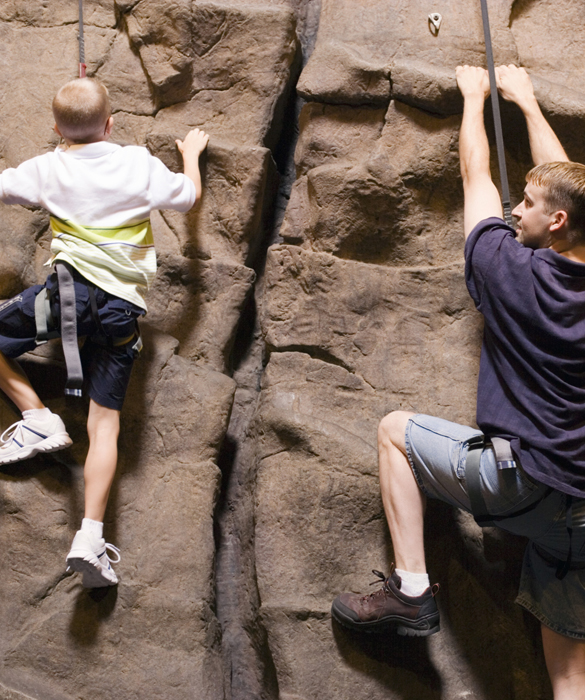
“Climbing uses the whole body and requires balance and concentration, which diverts energy and interest,” says Groth, who picks climbing as a choice sport for children with ADHD. “Physically challenging, climbing brings the child to a place above the others. There is a goal to be reached, and this gives children a sense of accomplishment.”
Boat Rowing
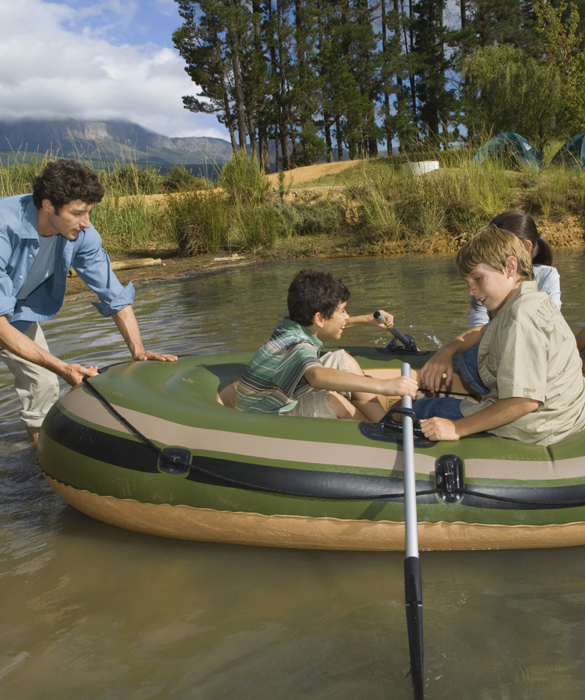
“Rowing is a perfect energy-burning activity for kids,” says Groth. “Rowing solo or with a group of friends engages the racing spirit but also requires cooperation—rhythm, agreement to move on.” No canoe or kayak required here. All you need is a small child-sized boat—even an inflatable one from the water toys section of your local store will do—and a pond, stream or a large swimming pool.
RELATED: 5 Signs Your Kid Is Over-Scheduled
Impromptu Dance Parties

Billy Elliot enthusiasts unite! Dancing—twirling, spinning and leaping—is one of the best, most fun ways for energetic girls and boys to blow off steam. Create a dance area in your home or at the park, blast music and encourage your child to rock out. “Free-form mosh-pit dancing allows the expression of movements that might otherwise be construed as aggressive,” says Groth. “We are symbolic creatures and these ‘moves’ express the tendencies without doing harm."
Gymnastics
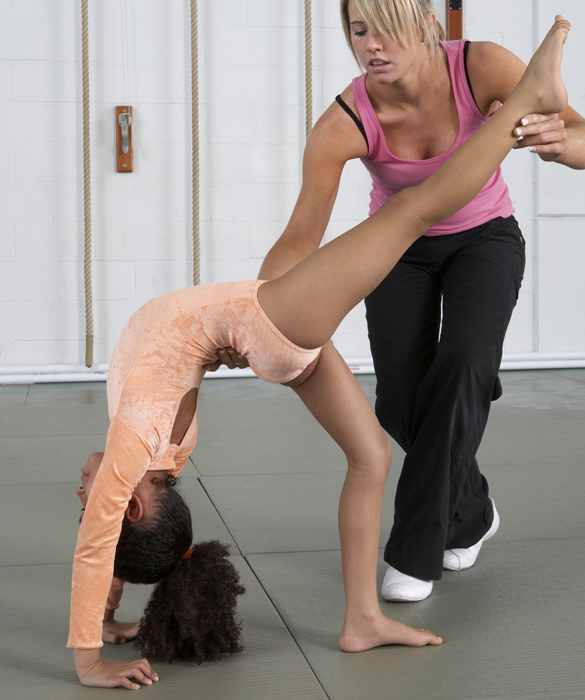
Tiny tumblers will flip over gymnastics class, where they can turn cartwheels, leap through the air and do somersaults to their heart's content. Not only does gymnastics help your child channel all that wild energy, but it also promotes flexibility, coordination and a willingness to try new things, which builds self-esteem. “In gymnastics, children master skills that require a lot of energy, such as rings and pommel horse,” says Groth.
Bike Riding

“In cycling, lots of energy is expended and lots of distance covered,” says Groth. The anticipation of what comes next on the road keeps kids going, he notes. Great for body and mind, tagging along on your own two-wheeler is a great way to bond with your child. Just make sure you're both wearing a proper helmet.
RELATED: Affordable Youth Activities
Skateboarding
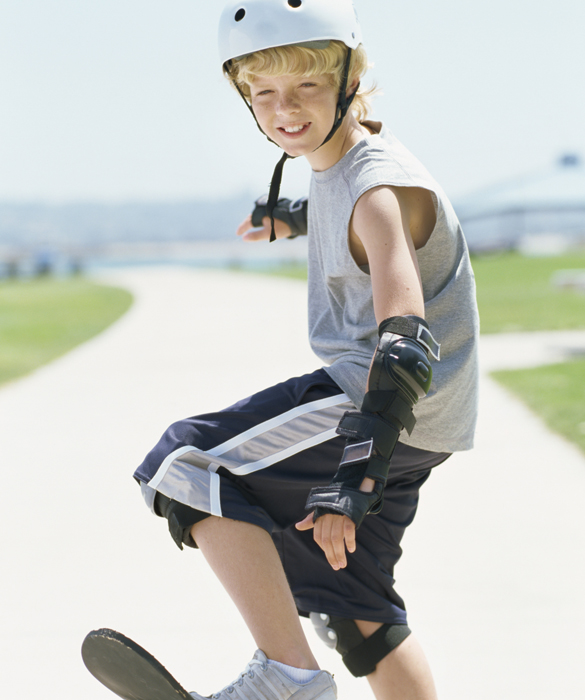
Speed, overcoming distances, balance—skateboarding is the activity of choice for high-energy children. “It exploits the energy-spurt pattern," says Groth. To boot: “It’s a pretty inexpensive activity.”
Playing Tag

One of the oldest children’s games in the mix, tag, involves constant movement that will delight high-energy kids to no end. “It’s a game that psychologically plays into the clear-cut winner-loser preference,” says Groth. “But the best part is that even if you ‘lose,’ you’re not out of the game. You can get back out there and keep playing for hours upon hours.”



